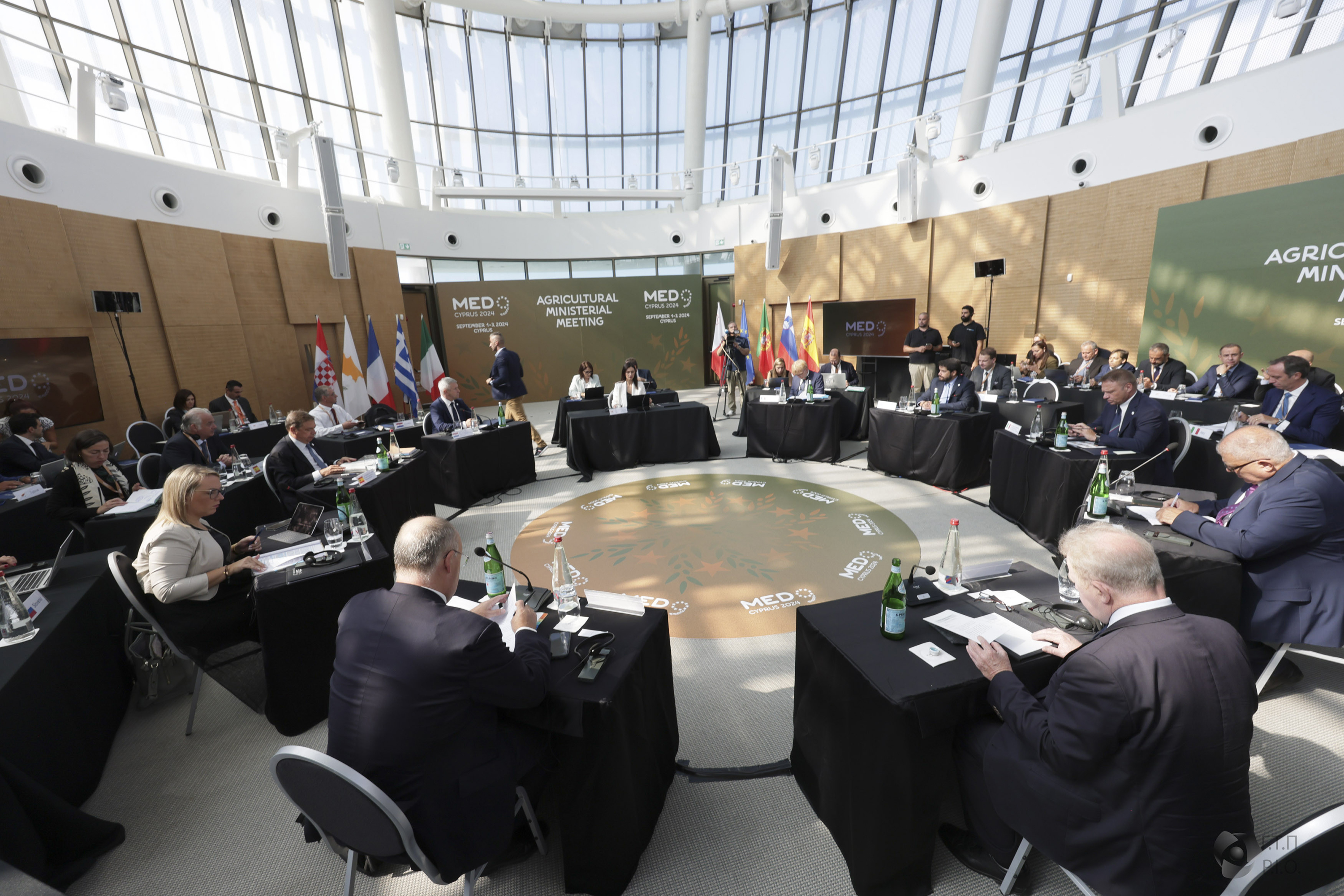Cyprus is a perfect example of the severe challenges posed by water scarcity in the Eastern Mediterranean, Agriculture Minister Maria Panayiotou said during the MED9 summit of agriculture ministers held in Cyprus on Tuesday.
Panayiotou stressed the importance of ensuring that water management strategies are “inclusive and equitable”.
In her speech at the summit organised at the Ayia Napa marina, she highlighted the significant challenges the Mediterranean region faces due to climate change, pointing out that the recent acceleration of climate change has exacerbated existing environmental issues in the Mediterranean basin, driven by a combination of land use changes, increasing pollution and declining biodiversity.
“Climate change is dramatically altering weather patterns in the Mediterranean, with rising temperatures affecting rainfall patterns and more frequent and severe droughts becoming the new normal,” Panayiotou said.
“These changes lead to reduced annual rainfall and increase competition for water resources due to decreased availability and higher evapotranspiration rates in crops.”
The minister also stressed that water scarcity is one of the most urgent issues with profound impacts on agriculture, human well-being and economic stability.
According to the European Drought Observatory (EDO), Europe is facing its worst drought in at least 500 years, with prolonged dry conditions, above-average temperatures, and a series of heatwaves worsening the effects of extended rainfall shortages and directly impacting soil moisture and vegetation growth.
“Agriculture, which consumes about 70 per cent of the extracted water, is particularly vulnerable to water scarcity,” Panayiotou explained.
“Reduced water flow limits plant growth and productivity, leading farmers to shift towards more drought-resistant crops, which require less water but may affect food diversity and local dietary habits.”
Furthermore, she also underlined the potential long-term impacts of water scarcity on soil salinity and erosion, which could lead to reduced soil fertility and agricultural productivity.
“Reduced agricultural production translates into food supply instability, economic losses for farmers, higher food prices for consumers, and broader economic and social disruptions in rural areas,” she said.
Focusing in particular on Cyprus, Panayiotou described the country is a prime example of the challenges and impacts of water scarcity in the Mediterranean.
“Cyprus faces limited natural water sources combined with a semi-arid climate and periodic droughts. Over recent decades, the country has experienced a significant decrease in annual rainfall, affecting both surface and groundwater sources, with subsequent impacts on human well-being and the economy.”
The minister added that the overexploitation of groundwater has led to depletion and increased salinity of aquifers, particularly in coastal areas.
“Rapid urbanisation, population growth, and a booming tourism industry have further increased water demand, putting additional strain on resources.”
In her concluding remarks, Panayiotou underlined the urgent need for using non-conventional water resources to address water imbalances, such as advanced water treatment and reuse systems, and seawater desalination.
“We need better, fairer and more inclusive water management strategies, addressing the needs of vulnerable populations and promoting social cohesion,” Panayiotou said.
Speaking after her, the European Commissioner for Agriculture Janusz Wojciechowski, who also attended the summit, acknowledged the increasing threat of drought across the EU and stressed the need for stronger and more coordinated responses.
He called for the adoption of more sustainable water management practices, including advanced irrigation techniques, water-saving technologies and more resilient crop varieties.
Wojciechowski highlighted the role of the Common Agricultural Policy (CAP) in supporting these efforts, providing financial support for investments in drought-affected areas and promoting sustainable water use. He urged all stakeholders to make full use of these tools, with the full support and cooperation of the European Commission.
“The risk of drought continues to grow,” Wojciechowski said, “but our response is becoming stronger and more coordinated. By continuing to strengthen our resilience, we can overcome the threat of drought and ensure that our farmers can provide food security across the bloc for years to come.”







Click here to change your cookie preferences